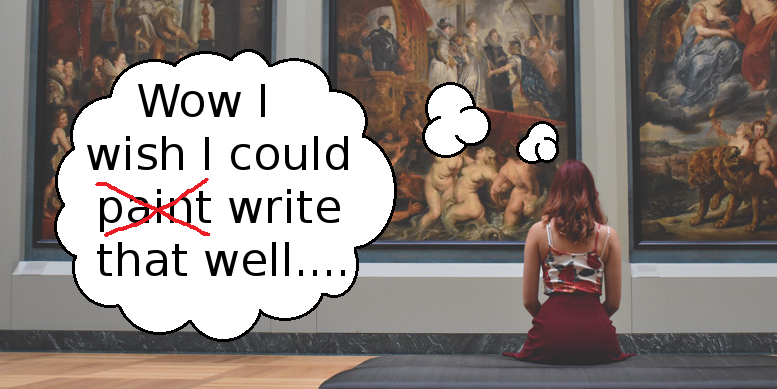Last week on Masterpiece Monday we had an installment in the series of Awesome Authors DO-ing Writing DON’Ts, and this week I’d like to continue with another addition.
When we read articles about writing online or attend writing groups and such, we’re often told NEVER to do certain things. Never tell always show, never use adverbs, never use ellipses, never use more than two adjectives at a time, etc. etc.
While many of those are usually good advice, they can be a real hindrance if stuck to all the time. I talked previously about how forcing myself to always show in my writing and never tell held me back.
This week I’d like to talk about parentheses. As writers we’re often told to never to use parentheses, unless we’re using it to cite a source in non-fiction writing.
